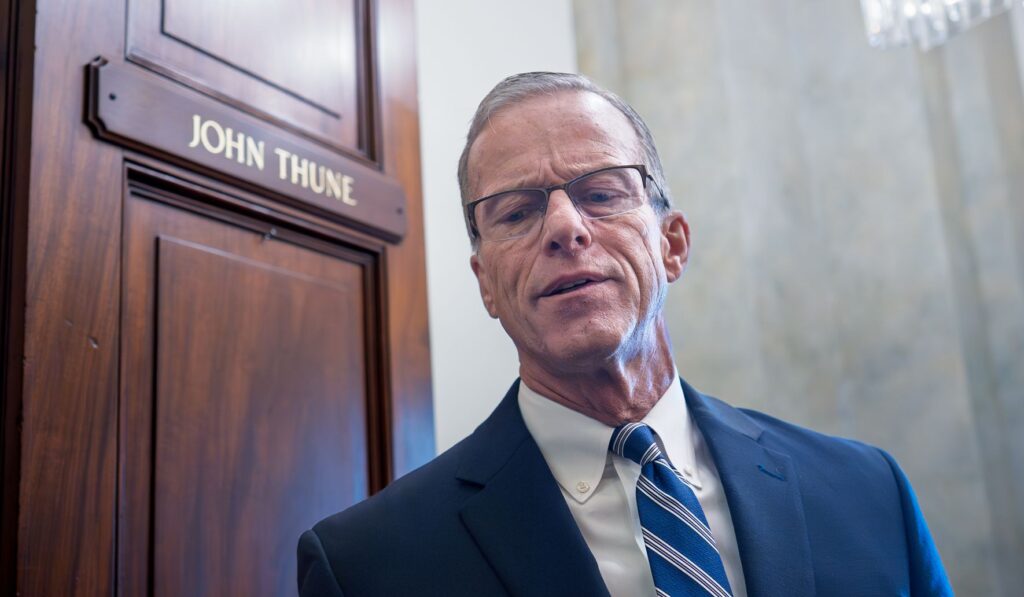The Senate will hold a second vote Friday on a measure to pay essential federal employees who’ve been working through a 38-day shutdown, with hopes for a bipartisan fix fading as leaders push their competing priorities.
The chamber is scheduled for a follow-up vote Friday after an earlier effort failed to secure the support needed to move forward, and lawmakers are framing the choice as a test of who will put people first. Republicans are pushing a clear, direct message: federal workers who show up for duty deserve pay, no political games. That push comes as the shutdown stretches into its 38th day and ordinary families feel the strain.
Many essential personnel have continued to work without current pay while being promised retroactive checks if lawmakers act, and that promise hasn’t eased immediate hardship. The gap between paycheck timing and bills due is real and urgent, and Republican leaders say the quickest route is a focused bill to restore pay. Democrats and other lawmakers have been resistant to proposals they see as tied to larger spending fights, which has stalled a clean, fast solution.
The human cost of the stalemate is straightforward: people who keep airports open, manage prisons, respond to emergencies and secure the border are doing their jobs without pay today. Those employees include frontline workers who cannot simply stay home, and their families are juggling housing, food and credit obligations on a day-to-day basis. Republicans point to that reality to argue for immediate action that addresses pay rather than larger policy demands.
On the floor, the debate is legal and procedural as much as it is moral. A second vote gives senators another chance to move a narrow bill that would deliver pay quickly, and supporters are focusing on the simplest path possible. Opponents counter that a standalone measure skirts the broader fiscal decisions Congress must make, leaving both sides dug in and the clock ticking for workers.
Republicans frame the choice plainly: do you reward essential service during a crisis, or do you make ordinary Americans pay the price for a political standoff? That framing is meant to force a clear vote and put pressure on colleagues who might otherwise sit on the sidelines. The messaging is designed for voters who expect government to keep basic functions running and to treat workers fairly.
Administrative options are limited. Agencies are using existing authorities to shift staff and manage priorities, but those are stopgap moves that don’t replace pay. Local communities and employers around the country feel ripple effects when federal paychecks lag, and those second-order impacts show up quickly. Republican advocates say those realities argue for cutting through the noise with targeted relief.
Beyond the immediate pay issue, there’s a larger fight over budgets and priorities that won’t disappear with a single vote. Some senators want pay protections tied to spending limits or border policies, while others insist on keeping the issues separate. The tension means a narrow bill could pass yet still leave the broader shutdown unresolved, but supporters argue that fixing worker pay now reduces human harm and narrows the political fallout.
Legal questions about retroactive pay and how agencies account for delayed checks are manageable, lawyers say, but the practical pain of missed pay is not fixed with legalese. Once Congress approves pay, payroll systems still need time to process and deliver funds, which is why advocates urge speed rather than brinksmanship. Republicans are using that timing reality to press for a vote that produces immediate legislative authority for pay distributions.
The political consequences are immediate and visible. Constituents call and show up to town halls with real stories about missed rent and mounting bills, and senators hear that in their home states. Republicans believe the politics favor anyone who acts quickly to protect workers, and that argument is central to their strategy on the Senate floor this week. The vote on Friday is meant to create a choice that leaves no easy neutral ground.
Messaging beyond the chamber is also part of the playbook: publicizing the vote, highlighting affected workers and framing opponents as willing to withhold pay during a crisis. That tactic aims to sharpen the optics of the shutdown for voters and to force media and local leaders to focus on the human impacts rather than procedural minutiae. Republican communicators are keeping messages tight and focused on the promise of pay for essential service.
Operationally, passage of a narrowly tailored measure would free agencies to prioritize payroll processing and give managers a clear directive to handle back pay quickly. It would not, by itself, reopen large budget fights or settle disputes over long-term funding, but it would deliver relief to people who kept government running. Supporters argue that taking that one concrete step lowers the temperature and protects vulnerable families now.
Opponents continue to insist that any resolution must address broader spending or policy questions, leaving the path forward uncertain even after a successful vote. That creates the odd situation where paying workers is entangled with larger disagreements, and time is the scarce resource. Friday’s second vote will show whether senators can agree on that limited, urgent step or whether the stalemate presses on into another week.
The chamber returns to the question with the clock and public patience running down, and each member will have to weigh the immediate human cost against longer-term bargaining positions. Lawmakers who back a narrow pay measure argue it’s a straightforward fix for a preventable hardship and say action now keeps faith with workers who never stopped serving. The outcome of Friday’s vote will be a clear marker of where that balance lands in practice.



